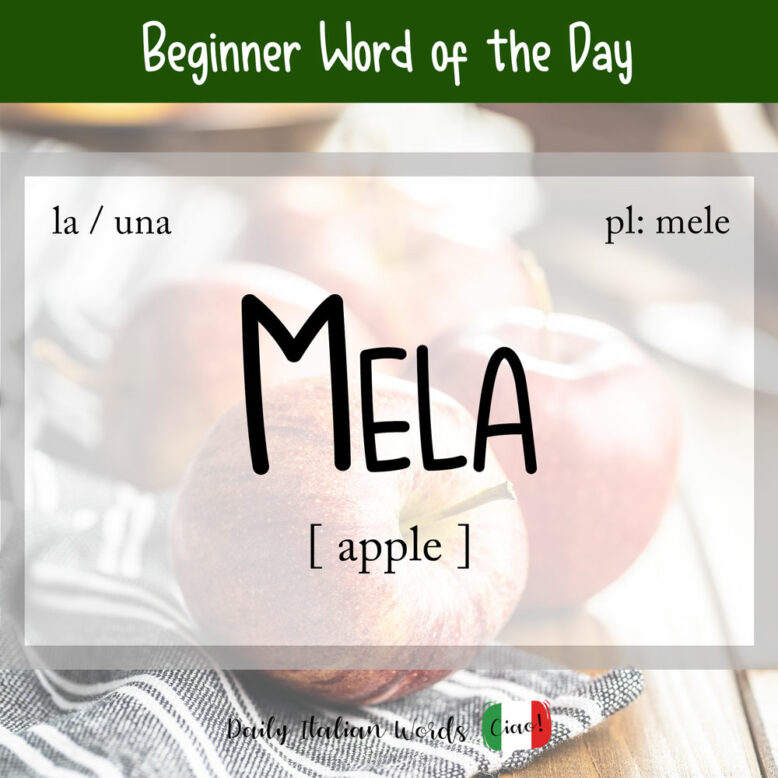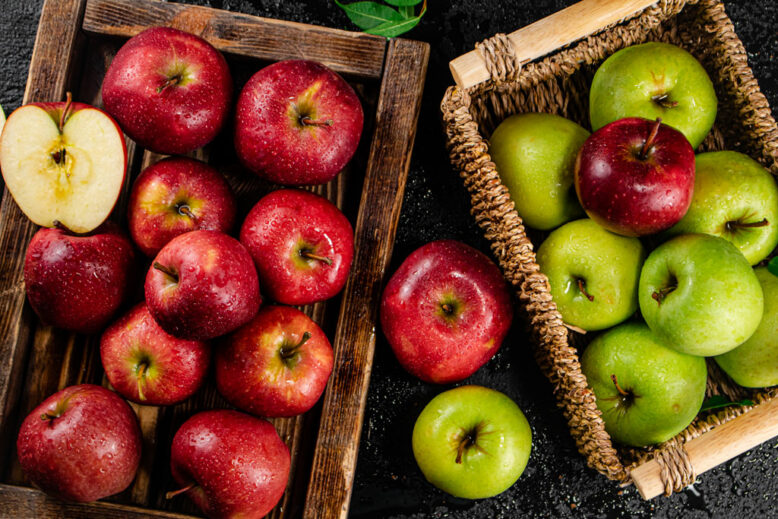The Italian word for apple is mela (feminine, plural: mele) and the tree upon which they grow is called melo.

Both words derive from the Latin word “mālum” meaning “any tree-fruit fleshy on the outside and having a kernel within.” (Lewis & Short Latin Dictionary)
Today it forms the basis of many fruit names in Italian including melone (melon), melagrana (pomegranate), mela cotogna (quince) and even melanzana (eggplant).
Cerco di mangiare una mela ogni giorno.
I try to eat an apple every day.

Apples can be used to make many different products, including:
- succo di mela = apple juice
- sidro di mele = apple cider
- aceto di mele = apple cider vinegar
- mela caramellata = candy apple
- torta di mele = apple pie
- mousse di mela = apple sauce
The expression bad apple (mela marcia) exists in both English and Italian. It refers to a bad or corrupt person, especially one whose negative behaviour is likely to have a detrimental influence on others in a group.
Another apple-related expression that appears in both languages is:
Una mela al giorno toglie il medico di torno.
An apple a day keeps the doctor away.

If you say that someone is bianco e rosso come una mela (as white and red as an apple) in Italian, you are commenting on their healthy appearance!
Heather Broster is a graduate with honours in linguistics from the University of Western Ontario. She is an aspiring polyglot, proficient in English and Italian, as well as Japanese, Welsh, and French to varying degrees of fluency. Originally from Toronto, Heather has resided in various countries, notably Italy for a period of six years. Her primary focus lies in the fields of language acquisition, education, and bilingual instruction.


